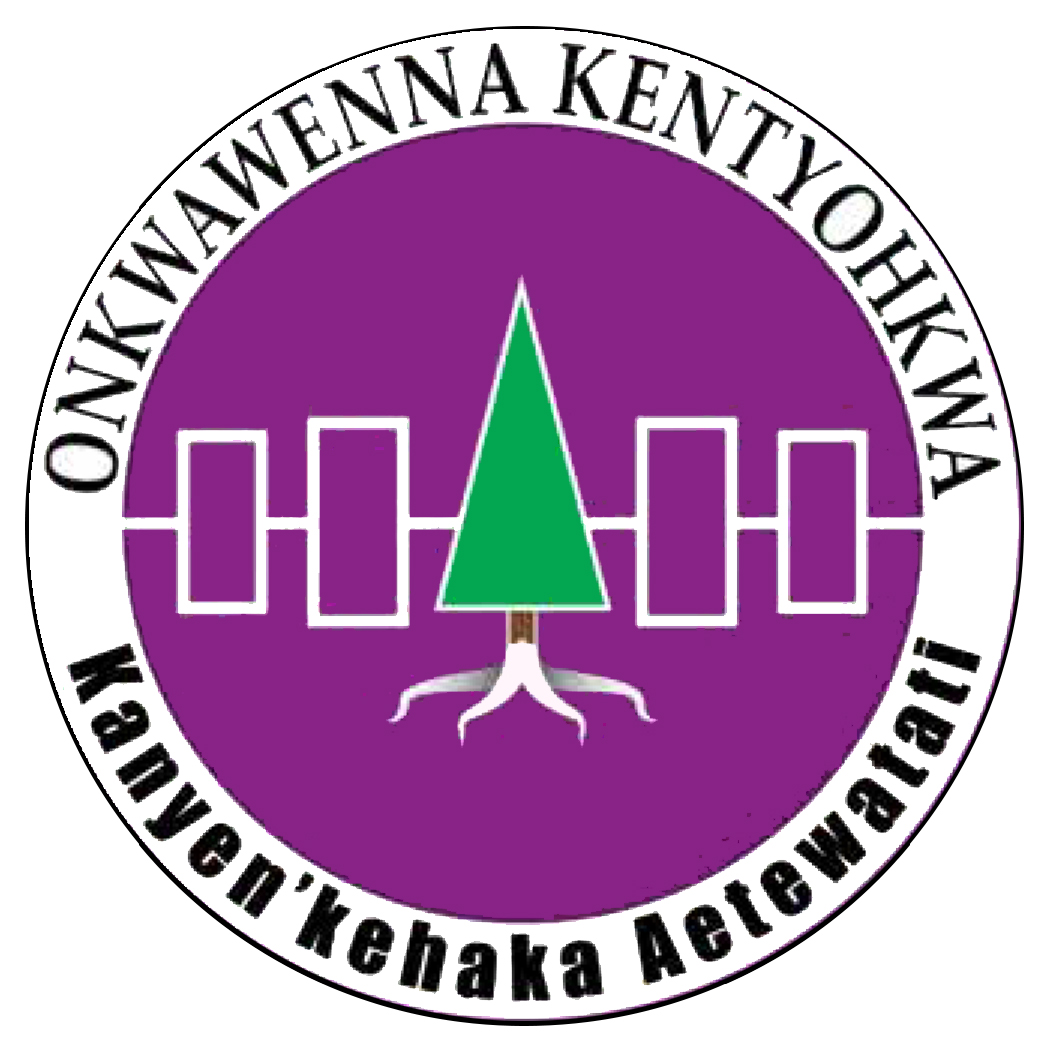Adult Immersion
The Adult Immersion Program is two school years long. It is a full-time program. Students attend from 9:00 a.m. to 3 p.m. Monday to Friday from early September to mid-May for approximately 1,000 classroom hours per year.
Attendance is usually limited to twelve students. Six Nations band members and other Rotinonhsyonni (people of Iroquoian ancestry) are supported to attend the program.
The program is conducted entirely in Kanyen’keha.
First-Year Program
Goal: To enable beginning students to converse with fluent speakers on a limited number of subjects involving common situations and a few everyday events. They will be able to talk about and describe their friends and family members: their physical appearance, clan and nation, health, mental state, aches and pains, location, place of residence, age, children, marital situation, personal possessions and the weather. They will be able to describe people and objects and where and how they are located, their ownership, colour and number. They will be able to talk about all these situations in the past, present and future. As well, they will be able to name common domestic and “wild” animals, birds and insects and geographic features. They will be able to name common local, regional and world place names. More information can be found here.
Students are expected to achieve at least an Intermediate-Low level of proficiency on the A.C.T.F.L. scale at year-end.
Second-Year Program
Goal: To enable students who have completed the First-Year Program to hold extended conversations with fluent speakers, in general terms, on almost any subject. They will be able to describe daily household routines, life-cycle events, common occupations, recreational activities, movement and travel, historical events, the senses, body movement and functions, mental and emotional changes, interpersonal communication and interpersonal relationships in any time frame. As well, they will be able to make complex descriptions of events regarding direction, repetition, co-incidental occurence, multiple actions, reversals and movement to accomplish an action. They will be able to paraphrase what they are saying and elicit the meaning of words they don’t understand through conversation in Kanyen’keha. They will speak and understand the Ohsweken dialect at a normal speaking pace. They will also learn vocabulary and expressions from other dialects. More information can be found here.
Students are expected to achieve at least an Advanced-Low level of proficiency on the A.C.T.F.L. scale at year-end
Third-Year Program
Goal: To enable students who have completed the Second-Year Program to hold extended conversations with fluent speakers on a wide variety of complex subjects. They will be able to discuss in detail their thoughts and views on a vast array of subjects while remaining articulate, comprehensive, and understood by fluent speakers. Students will be able to describe in detail many complex texts and stories (both modern and historical), provide their own theories, hypotheses, interpretations, and even actively debate these topics by providing points of argument and research. Specific attention is paid to student comprehension and ability to recite traditional stories of the Kanyen’kehá:ka, thereby studying rarely utilized vocabulary, the origin of certain words and phrases, the origin of elements of the natural world, and traditional political structure. The hands-on experience provided by the Third-Year Program creates speakers of Kanyen’kéha who are well-versed in the self-sustainable practices of the Kanyen’kehá:ka: hunting, tapping trees, gardening, and especially Longhouse ceremonies are all major topics of study. Not only will students be able to perform these practices in the language, but also describe them in detail to a fluent speaker. Through numerous presentations, guest speakers, practical tests, written research projects, philosophical discussions and topical debates, Third-Year students will attain a high level of proficiency in both the spoken and written forms of Kanyen’kéha.
Onkwawenna has designed a Third-Year curriculum but has yet to be funded to make final preparations to teach the program.
Accreditation
Under a 2007 articulation agreement with the University of Western Ontario, Onkwawenna students receive university credit for successfully completing the First-Year or the Second-Year Program if they subsequently enroll at U.W.O. (The credits are not transferrable.)
